Medical Center

Radiology
High-tech in the Radiology Service
We work with conventional and 3D radiology, high-resolution ultrasound, high-field (1.5-Tesla and 3-Tesla) magnetic resonance imaging, which combined with a team of expert radiologists and technicians, constitute the basic pillars for the diagnosis and early detection of diseases. At Olympia we offer you state-of-the-art technology and an expert, highly-specialised team.
Our technology
- 2 High-Field MRI Scanners: 3 Tesla and 1.5 Tesla with Integrated Artificial
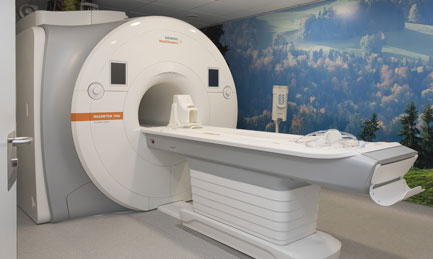
2 High-Field MRI Scanners: 3 Tesla and 1.5 Tesla with Integrated Artificial
Magnetic Resonance Imaging (MRI) is a diagnostic technique used to obtain detailed images of the body's organs, tissues, and internal structures. It utilizes a powerful magnetic field and radiofrequency waves to generate high-resolution images of the human body. High-field MRI is an advanced technology that provides sharper and more detailed images compared to lower-power devices. This increased resolution allows physicians to detect and diagnose a wide range of conditions with greater accuracy, including musculoskeletal injuries, brain injuries, cardiovascular diseases, and cancer. Additionally, the design of these MRI scanners is optimized for better patient comfort, featuring significantly reduced noise and a wider bore to minimize claustrophobia and anxiety during the scan.
- Multitom: conventional digital robotic X-ray room
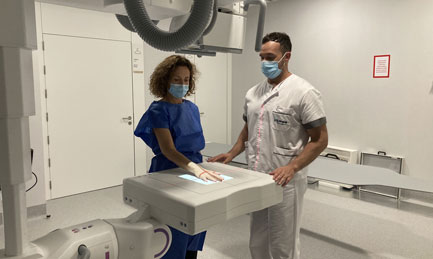
Multitom: conventional digital robotic X-ray room
Our Multitom conventional radiology room is a robotic room which, in addition to working with high image quality X-rays, rotates around the patient, obtaining 3D images of small joints even when the patient is standing upright.
- High-resolution ultrasound
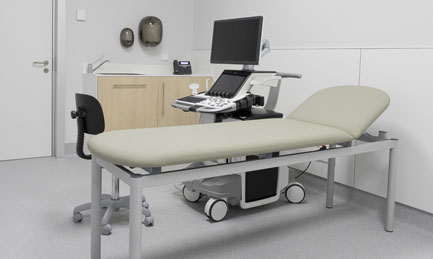
High-resolution ultrasound
We use high-resolution ultrasound to diagnose injuries and to guide our ultrasound-guided procedures. This allows us to accurately visualise internal anatomical structures and ensure that we are delivering treatment or taking samples from the correct area.
- Densitometry
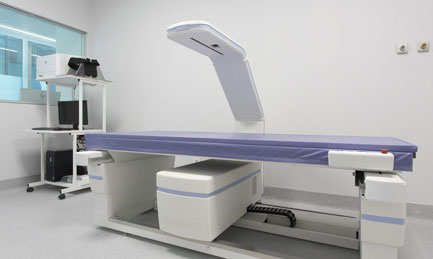
Densitometry
This test measures bone density. The test is based on the attenuation of radiation that can be measured as it passes through the bone structure and allows assessments in regions such as the spine and hip to evaluate whether the patient has osteopenia or osteoporosis.
- Digital mammography equipment
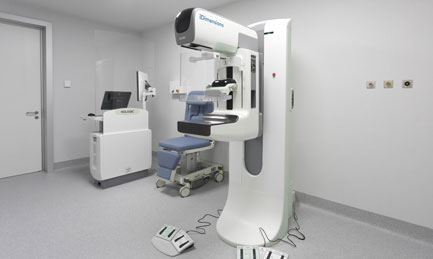
Digital mammography equipment
A mammography examination, called a mammogram, is a type of imaging that uses a low-dose X-ray system to examine the breasts for early detection and diagnosis of breast disease.
Diagnostic tests
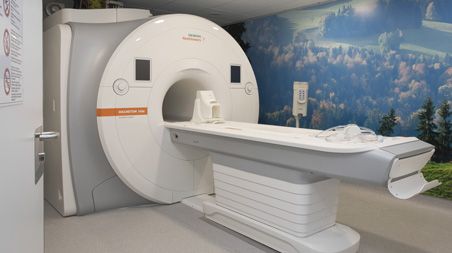
Specialists in Sports and Musculoskeletal (MSK) Radiology
We are experts in imaging diagnosis of sports injuries and musculoskeletal conditions. More than 80% of the studies we conduct focus on this specialty, making us a reference center for professional and amateur athletes, as well as patients seeking an accurate evaluation of their muscle, joint, and bone injuries. With state-of-the-art technology and a specialized medical team, we provide fast and reliable diagnoses, essential for planning the most appropriate treatment and accelerating recovery.
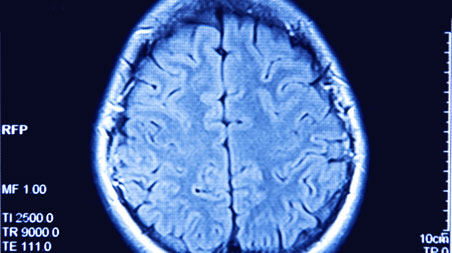
Neuro-radiology
Next-generation MRI equipment, capable of responding to the increasingly demanding diagnostic requirements of neurologists and neurosurgeons with techniques such as 3D sequences, diffusion, angiography, etc.
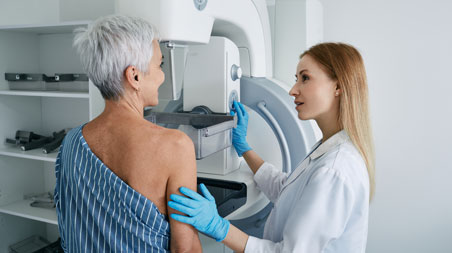
Comprehensive Breast Pathology Diagnosis
We offer the most advanced technology in Tomosynthesis and Digital Mammography, enabling early breast cancer detection with lower radiation exposure and reduced compression time. Additionally, we are pioneers in Cryoablation techniques, a minimally invasive alternative that freezes diseased tissue to destroy unwanted cells while preserving healthy tissue, eliminating the need for open surgery.
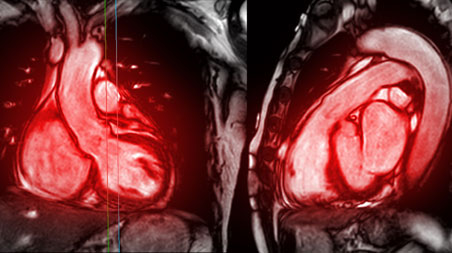
Cardiovascular diagnosis
Cardiovascular disease is the most common cause of death in Western societies. Cardiac Magnetic Resonance Imaging (CMRI) enables a high-resolution non-invasive assessment of the state of the myocardium after an ischaemic event and is very useful in the diagnosis of various heart diseases (congenital, myocarditis, cardiomyopathies, etc.).
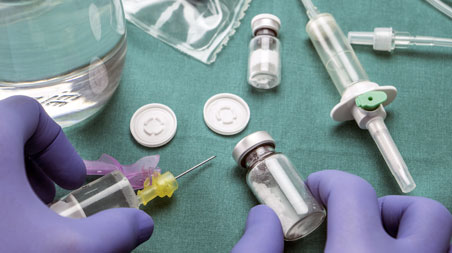
Interventional Radiology
Is a medical discipline that allows minimally invasive diagnosis and treatment of diseases and traumatic injuries. It encompasses ultrasound-guided arthrography, infiltration and drainage, fine needle aspiration (FNA) and biopsies.



